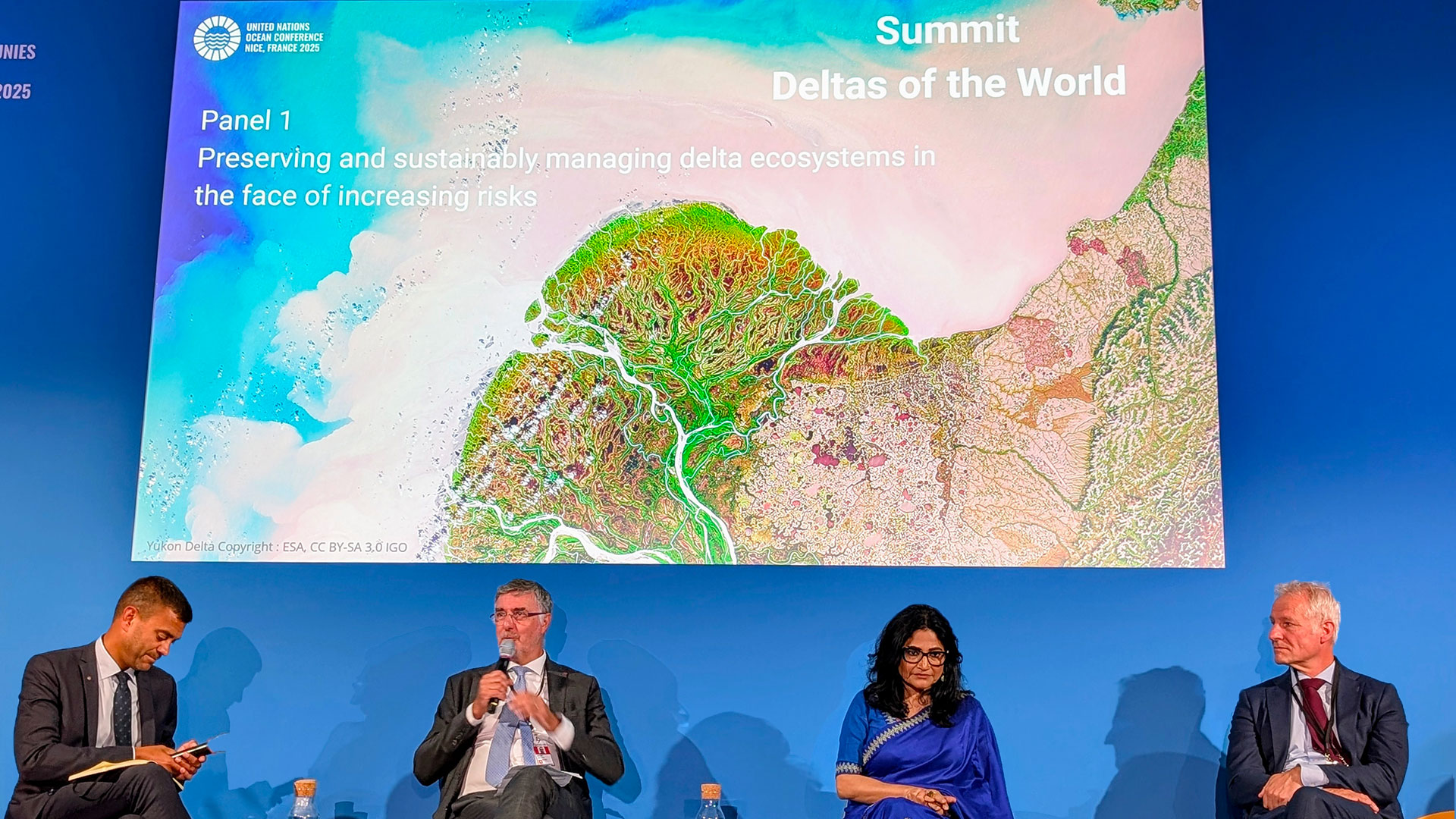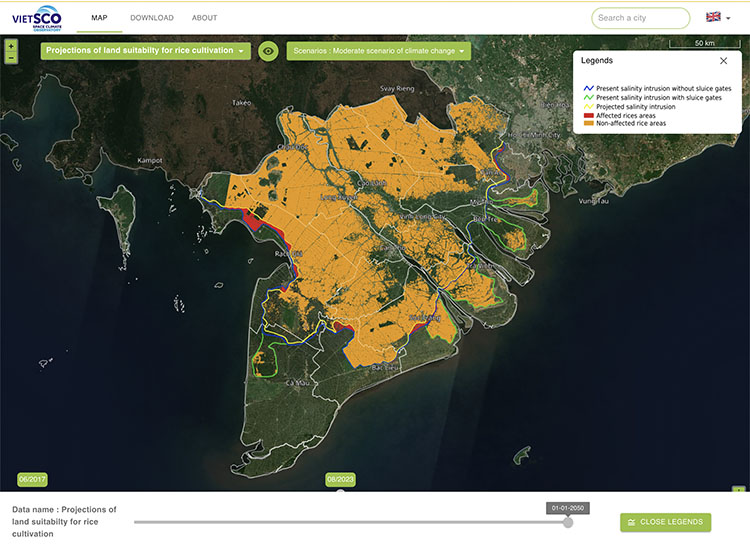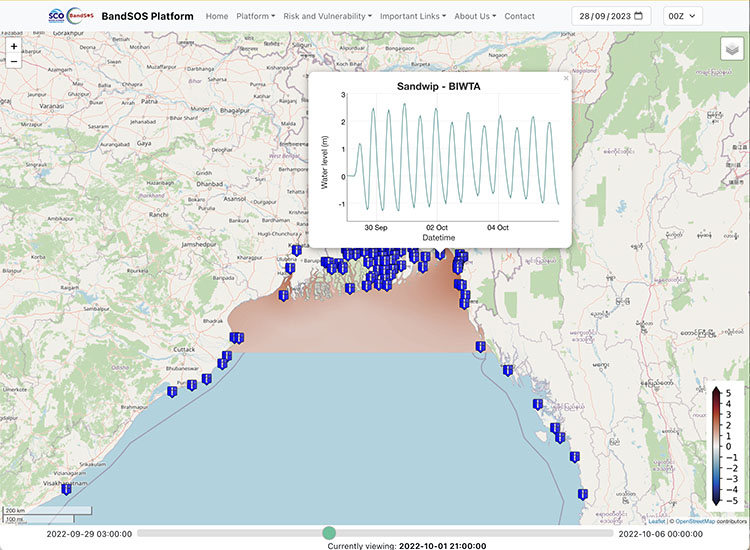UNOC 2025: SCO at the World Deltas Summit
|
From June 9 to 13, 2025, the 3rd United Nations Ocean Conference (UNOC) was held in Nice (France). Represented by CNES, the SCO supported, with examples, the space solutions implemented by its projects to help territories on the front line of climate change, particularly deltas. |
▲ Olivier Poivre d'Arvor, Ambassador in charge of Poles and Maritime Issues and the French President's Special Envoy to the UNOC, told us at the 3rd SCO Congress last March that satellites play an essential role in gaining a better understanding of the "Blue Neptune". |
At the World Deltas Summit
Held on June 9, the summit opened with high-level speeches by, among others, the Prime Minister of Vietnam, Mr. Phạm Minh Chính, the President of the Republic of Iraq, Mr. Abdullatif Jamal Rashid, the President of Colombia, Mr. Gustavo Petro Urrego, and the French Minister of Europe and Foreign Affairs, Mr. Jean-Noël Barrot. All stressed the strategic importance of deltas for ecological balance, food security and climate resilience.
Speaking at the first round table on the preservation and sustainable management of delta ecosystems, Jean-Marc Astorg, Director of Strategy at CNES, , emphasized that "when we talk about the world's deltas, we're talking about lifelines: fertile land, food security, dense populations, rich biodiversity. But these regions are also on the front line of climate change". And he recalls the main impacts, such as sea-level rise, extreme events and flooding, coastal erosion and salinization.
In the face of these challenges, the SCO embodies a concrete response, transforming satellite data into decision-making tools on a local scale. "At CNES, we believe that space data can make a real difference, especially when combined with local knowledge, science and strong partnerships. This is the very spirit of the Space for Climate Observatory," emphasized Jean-Marc Astorg. To illustrate this point, two of the SCO's flagship projects were highlighted:
|
|
"These two examples - one supporting climate-smart agriculture, the other strengthening disaster preparedness - demonstrate the power of spatial data when rooted in local needs," concluded Jean-Marc Astorg.
🤝 Last but not least, the summit provided an opportunity to strengthen the long-standing cooperative ties between CNES and Vietnam, a long-standing partner in the field of Earth observation. On this occasion, the VAST (Vietnam Academy of Science and Technology) officially expressed its willingness to join the SCO Charter, marking a new stage in our collaboration in the service of delta resilience.





